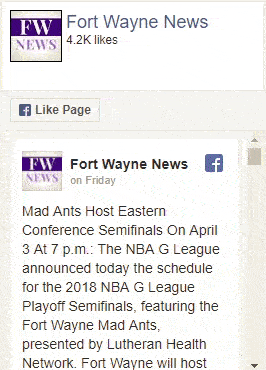Attempting to “rescue” an injured or seemingly abandoned baby wild animal usually does more harm than good, according to DNR wildlife officials. It’s also illegal if you don’t have the proper permit or don’t take the animal straight to a licensed wildlife rehabilitator.
This time of year, thousands of animals are born in the wild. With the spread of suburban areas into their natural habitats, young animals are increasingly born near humans, who might discover them without an adult animal nearby.
While some baby animals may be orphaned or abandoned, that’s not always true, according to Linnea Petercheff, operations staff specialist for the DNR Division of Fish & Wildlife. For example, rabbits come to the nest to feed their young only a couple of times a day.
"The apparent lack of an adult does not mean a young animal is orphaned," Petercheff said. "Adults often leave their young alone, safe in nests or dens, while they forage for food, but rarely do they abandon their young."
Picking up a baby animal that is not orphaned or abandoned is unnecessary and bad for the animal.
Such animals also pose risks for humans. They may look helpless, cute and cuddly, but they can bite or scratch. Some wild animals carry parasites and infectious diseases that can be transmitted to humans.
The best way to make sure an animal is truly orphaned is to leave it be, except to check it periodically. If you are still unsure if it’s been abandoned, place some strings or sticks across the nest. Place grass across a rabbit nest that has young in it.
If such items are later disturbed, the mother has probably returned, and you should leave the young animal alone. If you encounter young wildlife out of a nest (such as a bird), it is OK to gently return it to the nest. Otherwise, trust that an adult mother is caring for it.
The best way to make sure that a fawn that appears to be alone is truly orphaned is to check it periodically. Before taking any action, remember the following:
–Call a licensed wild animal rehabilitator.
–Leave the fawn alone, and its mother will probably come and get it. Deer can take better care of their young than a human can.
–Human scent on the fawn will not prevent the mother from taking care of it.
–If you do not see any deer nearby, have someone watch the fawn without being seen by the mother. In most cases, the mother will come back and get the fawn after you leave the area.
If you believe the mother has not returned to a nest or a deer has not come back to her fawn, or you know that the mother is no longer alive, call a licensed wildlife rehabilitator.
Remember, state laws prohibit keeping protected wild animals without a permit. Most wild animals are protected by law and cannot be kept. Federal laws also prohibit possession of migratory birds, including songbirds, raptors and waterfowl. It is even illegal to treat wild animals for sickness or injury without a permit.
Wild animal rehabilitation permits are issued to qualified individuals who take in sick, injured, or orphaned wild animals with the intent of releasing them back into the wild.
If you encounter an injured, truly abandoned or sick wild animal, do one of the following for assistance:
–Call a licensed wild animal rehabilitator.
–Call the DNR Division of Fish & Wildlife at (317) 232-4080.
–Call your DNR law enforcement district headquarters or regional headquarters.
–Call a licensed veterinarian for immediate assistance with a sick or severely injured wild animal.
